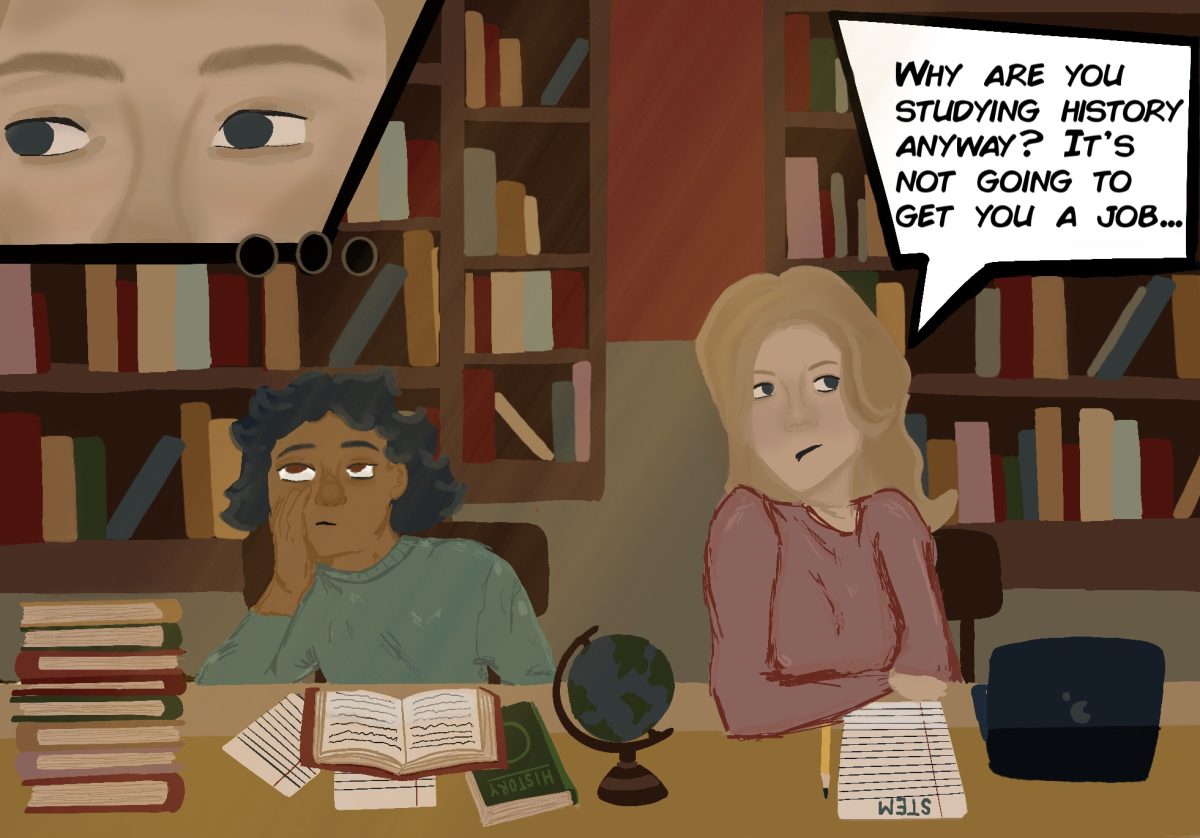The increasing dominance of STEM (science, technology, engineering, mathematics) education spawns beliefs that label the humanities as worthless. In a society where it’s common for STEM jobs to be higher paying, less students immerse themselves in the world of the humanities. We are told that if we want to be successful, we should study something practical. And so we do. We go into fields of mathematics and hard sciences, forgetting the pricelessness of the liberal arts.
All pieces of knowledge piece together like a puzzle. If we lose the humanities, we break this puzzle permanently. Hindering our ability to deepen our understanding and appreciation of other cultures and points of views only exacerbates the loss of connectivity. The experiences explored through liberal arts studies expose various new ways of thinking and questioning — something unattainable through STEM fields. The humanities educates students and assists them into developing mental habits that lead to successful, contributing members of society who can understand and value others, embrace the concept of empathy, and pursue lifelong learning.
Knowledge can be divided into three categories. An individual receives first-person knowledge through observations of the world around them. Looking within, or introspection, ascertains our own thoughts by looking outward. Third-person knowledge draws itself from the scientific method, where we can consider STEM related subjects. However, second person knowledge explores something entirely different. It’s the kind of knowledge that individuals do not have direct access to, but instead have indirect access through the experiences and perspectives of others. The humanities exists as the epitome of second person knowledge.
The notion of soft skills and the liberal arts are intertwined. Soft skills, acquired through personal interactions, encompass the ability to communicate effectively and professionally, as well as the capacity to collaborate with diverse personality types. The humanities can simulate lifelike experiences that teach an individual how to respond to these experiences.
Handling information and confronting challenging situations is a routine occurrence. However, it’s equally as critical when grappling with contemporary global issues from local to international scales. While the sciences are undeniably valuable, the humanities offer an alternative lens through which to view issues, and the best decisions emerge when diverse opinions and ideas are taken into account.
Instead of defining the liberal arts as a cheap and unwise path to a clouded success, we must understand the effects of studying the humanities to amplify its importance. Its impacts must be viewed beyond a pragmatic lens. Understanding that the humanities open the doors of wisdom, inspiration, and culture remains imperative.


